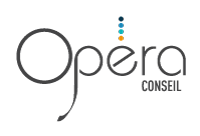Identify needs, qualify, ensure the right configuration... Resolve complexity and converge MOA and MOE
The executive is at the heart of a system of increasing complexity (pressure from the environment, internal constraints: finance, HR, politics, technological constraints) and when he has to lead an information system modernization project, he must, while managing his business functions, carry out multiple tasks: coordinating the MOE and MOA, translating the expectations of each of the controllers, contributing to their mutual understanding and to the approval of the specifications, ensuring compliance with a budgetary framework...
The Business Analyst is the experienced man or woman who can bring specific know-how to bear on the project.
Independent of the structure, he facilitates relations between the project owner and the project manager, helps the project owner to settle into the project by identifying the leadership needed to maintain control of the project, challenges different service providers who do not have the same interests, and contributes his methodological and technical expertise.
His neutrality is an indispensable asset, as he has no constraints, clarifies grey areas and asks questions, even disturbing ones. He is not exposed to internal pressures, and the scale of the changes the project may bring has no impact on him. He can stand back from the operators, who often have to manage day-to-day life and the project in parallel.
The profit manager implements the process of optimizing the overall performance of a business unit.
OPERA consultants have the essential skills to assist you with the following actions:
Your concerns in Business Analysis & Profit Management
- improve business process efficiency,
- enhance agility and streamline processes,
- as technology for technology's sake is not appropriate, the need is to find lighter solutions that can respond in minimum time to rapidly evolving requirements
- untangle complexity and bring MOA and MOE together
- a 360° view of the business needs to be covered
- expertise in choosing solutions
- be assisted in deploying solutions
Opéra's offer - Business Analyse
Preliminary and opportunity studies
- Process modeling (using appropriate methods (BPA, BPM, MERISE, UML, etc.) and software tools), business process modeling, organization and resource modeling, functional mapping, application mapping, technical mapping (IT infrastructure).
- Expressing your needs
- Analyse comparative des solutions
- Budget study
- Drawing up a macro schedule
- Drawing up specifications
Tender management
- Drafting of the tender document
- Definition of selection criteria
- Organization of presentations/defenses
- Assistance with bid evaluation
- Contract management
Functional qualification
- Definition of the testing strategy and organization of test campaigns (acceptance protocol, schedule, stakeholders, logistics)
- Development of test scenarios
- Development of tracking documents and anomaly recycling process
- Tool-assisted implementation (expertise in test management tools SALOME, TESLINK, BORLAND, HP)
Commissioning
- Pilot site experimentation (identification of key metrics to measure during experimentation, contractual agreement with pilot sites, assessment of the experimentation phase, and adjustment of deployment modalities).
- Deployment
- Data migration
Maintenance and support
- Organization of the TRA (Third Party Application Testing)
- Organization of maintenance and support (collection and processing of user requests, system sustainability through adaptation to new needs, implementation of tools necessary for request tracking (ITIL), organization of user groups)
Operational assessment
The Opéra offer - Profit Management
Profit management or the paradox of the chicken and the egg
For a company to be successful, what should come first: financial profit or quality?
The answer to this question is, in our opinion, closely linked to Revenue Management, which is considered a natural step in the process of optimizing the general performance of an economic entity.
Companies must now be able to offer not only attractive pricing but also the best quality of service while maintaining the desired positioning. The most successful pricing strategy is that of dynamic pricing which combines the three major vectors which are: cost, identity and market knowledge.
The idea is to approach the subject in the broad sense of the term. Indeed, when we talk about «profit management», we must encompass the different forms of profit.
Obviously the first form that comes to mind is the
Financial profit
which involves the efficiency of control processes and operating results: every company must generate cash flow to consolidate its financial sustainability.
But not only that...
Profit as a brand image (identity)
is the perceived value of a brand and is calculated according to a SIMA protocol. This value generates direct and indirect profits for the company. Optimizing this profit requires dynamic and strategic segmentation, ongoing monitoring of customer satisfaction, and predictive functional adjustment to meet the expectations of future customers.

Profit in knowledge
is the intangible asset generated by historical external and internal data. The development of organizational knowledge is also another vector that is very often neglected.
The role of the revenue manager is to structure all profit centers and develop a sales strategy that guarantees overall performance and, above all, the most stable possible performance.
It is in this context that Opéra Conseil intervenes by providing a «Box RM» business solution capable of integrating into the company’s existing IS. Our box allows you to:
- Automatically recover internal and external data
- Cross-referencing the collected data
- Benefitting from advanced analytical tools to produce real-time and predictive indicators
- Managing historical data
- Establishing assumptions
- Managing alerts for goal achievement
- Easily communicate and collaborate on steering
- Sustainably managing the knowledge assets of companies and hotels
- Facilitating learning for new arrivals
Profit in environmental quality
Is the quality of human activities aimed at limiting environmental impacts, preserving ecosystems by ensuring access to viable resources (link between economy and ecology)









